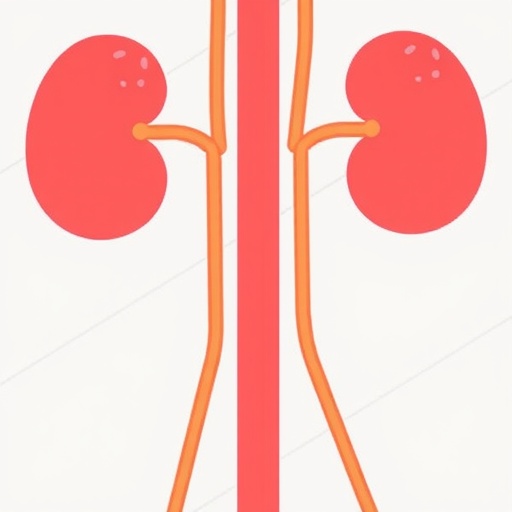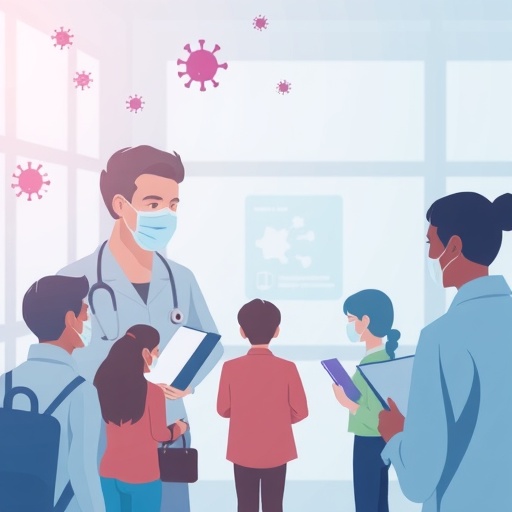
In a significant step toward reshaping the future of academia within biomedical engineering, new insights have emerged from a recently convened education summit focused on enhancing the professional development of teaching-focused faculty. The summit, which brought together leaders in the field, discussed innovative practices aimed at strengthening the pedagogical skills of faculty who prioritize teaching over research outputs. As the landscape of education evolves, the call for improved methodologies and supportive environments for teaching professionals in engineering has never been more critical.
The urgent need to address teaching-focused faculty development arises from a growing recognition that pedagogical training is essential for effective teaching in rapidly advancing scientific domains. Biomedical engineering is a unique field that combines principles of engineering with biological and medical sciences, producing innovative solutions for healthcare. However, to ensure that graduates from these programs are well-prepared for the challenges ahead, teaching faculty must be equipped with the necessary tools and strategies to foster student engagement and comprehension.
Discussions during the summit highlighted several best practices for professional development that can significantly benefit teaching-focused faculty. One prominent theme revolved around the integration of experiential learning opportunities into the curriculum. Faculty members were encouraged to adopt hands-on teaching techniques, allowing students to apply theoretical knowledge in practical environments. This approach not only enhances comprehension but also better prepares students for real-world applications of biomedical engineering principles.
Furthermore, the summit emphasized the importance of collaboration among faculty members. By establishing mentorship programs and collaborative networks, educators can share successful teaching practices and resources, ultimately contributing to a culture of continuous improvement in teaching quality. The summit underscored that fostering a community of practice among teaching faculty can lead to the development of shared instructional goals, enhanced morale, and greater collective efficacy in classroom instruction.
One of the key recommendations from the summit was the incorporation of technology as a facilitator for teaching effectiveness. With the digital landscape continuously evolving, teaching faculty were encouraged to integrate tools such as online learning platforms, multimedia presentations, and interactive simulations to enhance student engagement. By utilizing these technologies, faculty can create dynamic learning environments that appeal to diverse learning styles and allow for personalized instruction.
The summit also addressed the need for institutional support in the professional development of teaching-focused faculty. Educational institutions must recognize the importance of teaching excellence and provide adequate resources for faculty development initiatives. This could include funding for workshops, conferences, and access to research on pedagogical methods. By investing in faculty development, institutions demonstrate their commitment to enhancing educational outcomes and supporting the growth of their teaching staff.
Additionally, the attendees discussed the role of assessment and feedback in teaching development. Incorporating formative assessments not only helps faculty to gauge student understanding but also provides insight into their own instructional practices. Constructive feedback mechanisms, such as peer evaluations and student surveys, were highlighted as essential components in promoting self-reflection and professional growth among educators.
Another essential component raised during the summit was the cultivation of a teaching-oriented culture within biomedical engineering departments. Establishing clear standards and rewards for teaching excellence can motivate faculty members to prioritize their pedagogical efforts. Recognizing and celebrating exemplary teaching practices can create a sense of pride within the institution and encourage others to strive for similar accomplishments.
Moreover, given the interdisciplinary nature of biomedical engineering, the integration of team-based learning strategies was identified as a critical focus area. By promoting collaboration among students from various backgrounds—engineering, biology, medicine, and technology—faculty can help students appreciate the multifaceted challenges of biomedical problems. This method not only enhances learning outcomes but also reflects the collaborative nature of the biomedical engineering profession.
The summit participants also pointed out the necessity of adapting curricular offerings to keep pace with current trends in biomedical engineering. As healthcare technology advances rapidly, the curriculum must evolve to include cutting-edge topics such as artificial intelligence, data analytics, and biotechnology. Teaching-focused faculty should be at the forefront of these curriculum discussions, ensuring that the educational content aligns with industry standards and prepares students for the workforce.
The feedback from summit participants revealed strong enthusiasm for lifelong learning among educators. Faculty expressed a desire to engage in continuous professional development, attending workshops and seminars that deepen their knowledge of effective teaching practices. The summit served as a catalyst for a larger conversation about the importance of fostering a culture of lifelong learning among teaching-focused faculty, ensuring that they remain adaptable in an ever-changing educational landscape.
As the summit concluded, the commitment to enhancing the teaching experience for faculty in biomedical engineering was clear. The discussions and strategies shared among participants provided a roadmap for ongoing development and improvement in education across the discipline. With a collective focus on promoting teaching excellence, the biomedical engineering community can inspire a new generation of engineers who are not only knowledgeable but also skilled in solving complex biomedical challenges.
In summary, the education summit served as an essential platform to address the developmental needs of teaching-focused faculty in the biomedical engineering sector. The insights and best practices shared throughout the event signify a collective commitment to promoting effective teaching methodologies that will advance both faculty development and student success. By implementing these recommendations, institutions can pave the way for an enriched educational experience that benefits students and educators alike, ultimately leading to significant advancements in the field of biomedical engineering.
Subject of Research: Professional Development for Teaching-Focused Faculty in Biomedical Engineering
Article Title: Promoting Teaching-Focused Faculty in Biomedical Engineering: Education Summit Highlights Best Practices for Professional Development
Article References:
Amos, J.R., Ogle, B.M. & Hasenwinkel, J.M. Promoting Teaching-Focused Faculty in Biomedical Engineering: Education Summit Highlights Best Practices for Professional Development.
Biomed Eng Education (2025). https://doi.org/10.1007/s43683-025-00172-y
Image Credits: AI Generated
DOI: 10.1007/s43683-025-00172-y
Keywords: Faculty Development, Biomedical Engineering Education, Teaching Best Practices, Professional Development, Student Engagement.
Tags: Biomedical engineering educationcurriculum improvement in engineering educationeffective teaching in STEM fieldsevolving academic landscapesexperiential learning in biomedical engineeringfaculty development in engineeringhealthcare education methodologiesinnovative teaching practicespedagogical skills enhancementprofessional development for educatorsstudent engagement strategiesteaching-focused faculty insights




